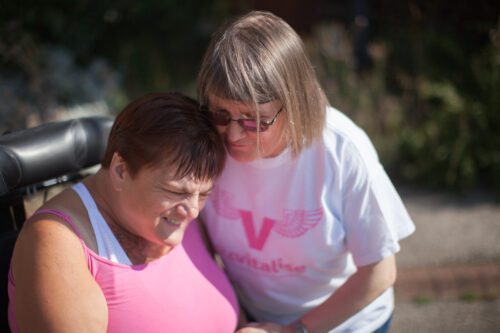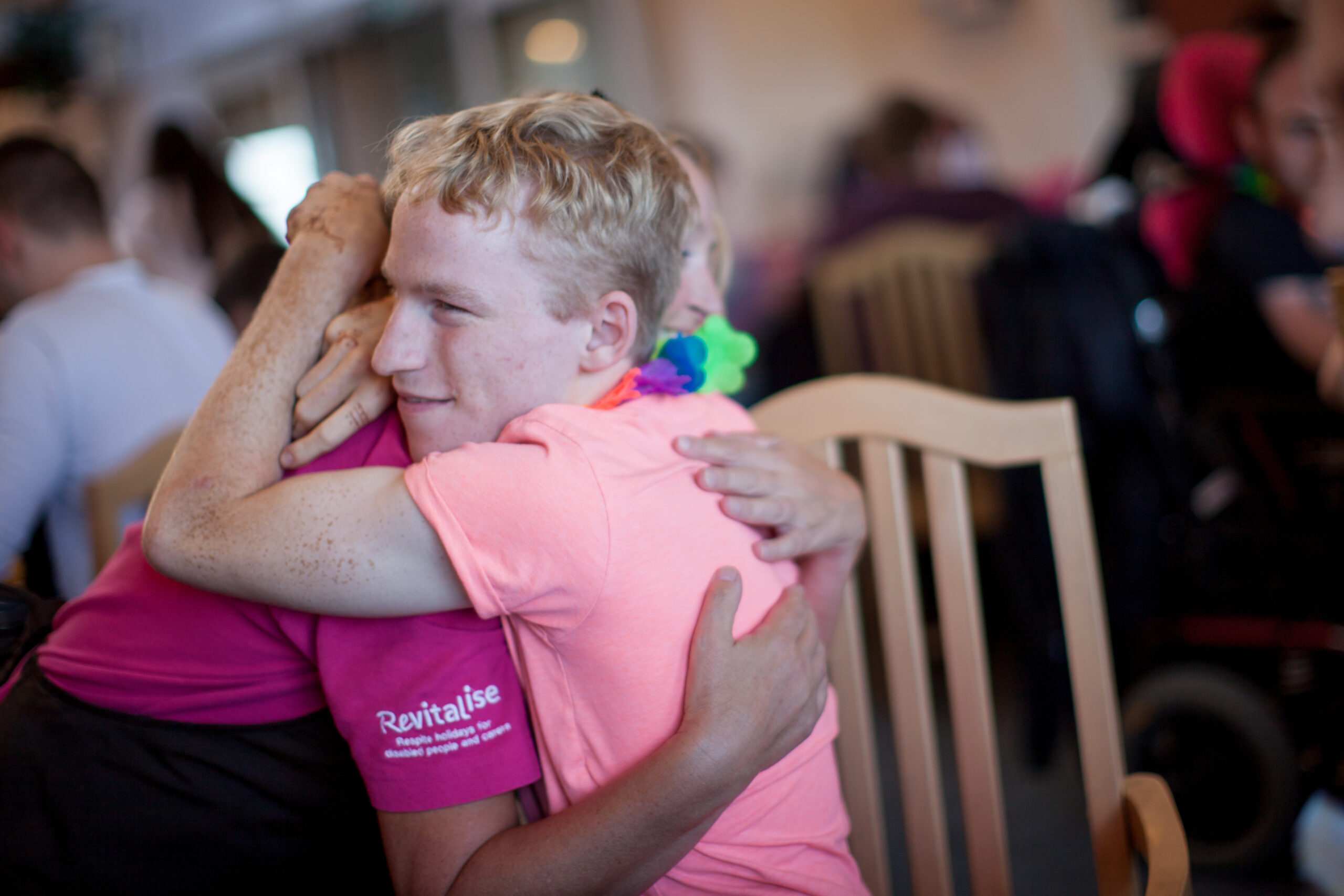How access to respite can improve mental health of disabled people in the current cost-of-living crisis

Revitalise’s vision is to create a society in which every disabled person and carer can take the break they want. As a national charity and respite holiday provider, Revitalise wants to raise awareness of these positive impacts of a break. In our own guest research, we found that:
- 97% of our guests report improved wellbeing after a stay at one of our hotels
- 96% of our guests indicate they would recommend Revitalise to a friend
Disabled people and unpaid family carers are disproportionately affected by the current cost of living crisis, causing harm to their mental health and wellbeing.
The Money and Mental Health Policy Institute last year warned that ‘government and energy firms must act urgently to prevent the cost-of-living squeeze becoming a national mental health crisis that will cost lives’.
This was in response to a survey they conducted which showed:
- Six in ten (59%) UK adults say that the cost-of-living crisis has had a negative impact on their mental health, such as leaving them feeling anxious, depressed or hopeless.
- 1 in 5 UK adults (21%) say they have felt “unable to cope” due to the rising cost of living — amounting to 11m people in total
Rising costs generally have a greater impact on disabled people and carers
This report from the House of Lords Library explains the impact of higher prices on disabled individuals and their households that, on average, have lower incomes than their non-disabled counterparts. They often incur additional costs related to the treatment and mitigation of their disability. Furthermore, such households typically spend a greater share of their income on food and energy, the commodities driving the current surge in inflation.
According to this ONS survey,
‘Over half (55%) of disabled adults reported finding it difficult to afford their energy bills, and around a third (36%) found it difficult to afford their rent or mortgage payments compared with 40% and 27% of non-disabled people, respectively.’
Pressures from increased costs also reduce the ability of disabled people and carers to take a much-needed break. Access to respite has become unaffordable to many. Local authorities are also under pressure from price rises, with inadequate social care and NHS budgets stretched thin.
However, local authorities have a statutory obligation to provide respite to carers. Some will fund respite breaks such as those provided by Revitalise. Many will not. In a survey published earlier this year, only 1% of all disabled people had received local authority funding for a Respite Break and 2% of disabled people had had applications for such funding turned down.
The impact of having a break cannot be underestimated. The compounded effects of being unable to access respite and increasing financial pressures are rocketing disabled people and carers straight into the eye of a perfect storm of mental health breakdown.
The challenges we’re responding to
The positive impact of a break cannot be understated. It’s not a luxury. For most of us it’s essential to our mental health, that we have time out from the stresses of our daily lives, as well as outside pressures. To unwind and reset, but also to feel joy and refresh our zest for life.
The results of a 2022 YouGov Audience National survey gave a strong indication of the need for greater awareness of the role that local authorities have in funding vital respite breaks.
The survey results showed the importance of holidays to the overall wellbeing of disabled people and those who care for them. Key findings from the report were as follows:
- The ONS Standard Life Satisfaction score for people who had taken the holiday they wanted this year was 6.0 compared to 3.9 for those who had not taken a holiday in the past three years
- 72% of carers had no break at all during the pandemic and almost three quarters reported feeling exhausted
- 68% of carers can’t go on holiday because of caring responsibilities
- Levels of wellbeing amongst disabled people are significantly lower than the wider population. This includes lower levels of life satisfaction and much higher levels of anxiety
- The majority of disabled people (54.6%) meet with someone who lives outside their home less than twice a week
It is now even more evident that the need for respite has never been higher. With proven positive benefits to mental health and wellbeing, Revitalise believes that our respite holidays can help prevent disabled people and carers from reaching breaking point in 2023.
We ask that government and local authorities do not to forget the importance of respite this year. There is a great opportunity to reduce the pressures of the cost-of-living crisis for disabled people and carers by honouring their statutory obligation to offer funding for respite breaks. An opportunity which can only improve wellbeing especially in these difficult times.

